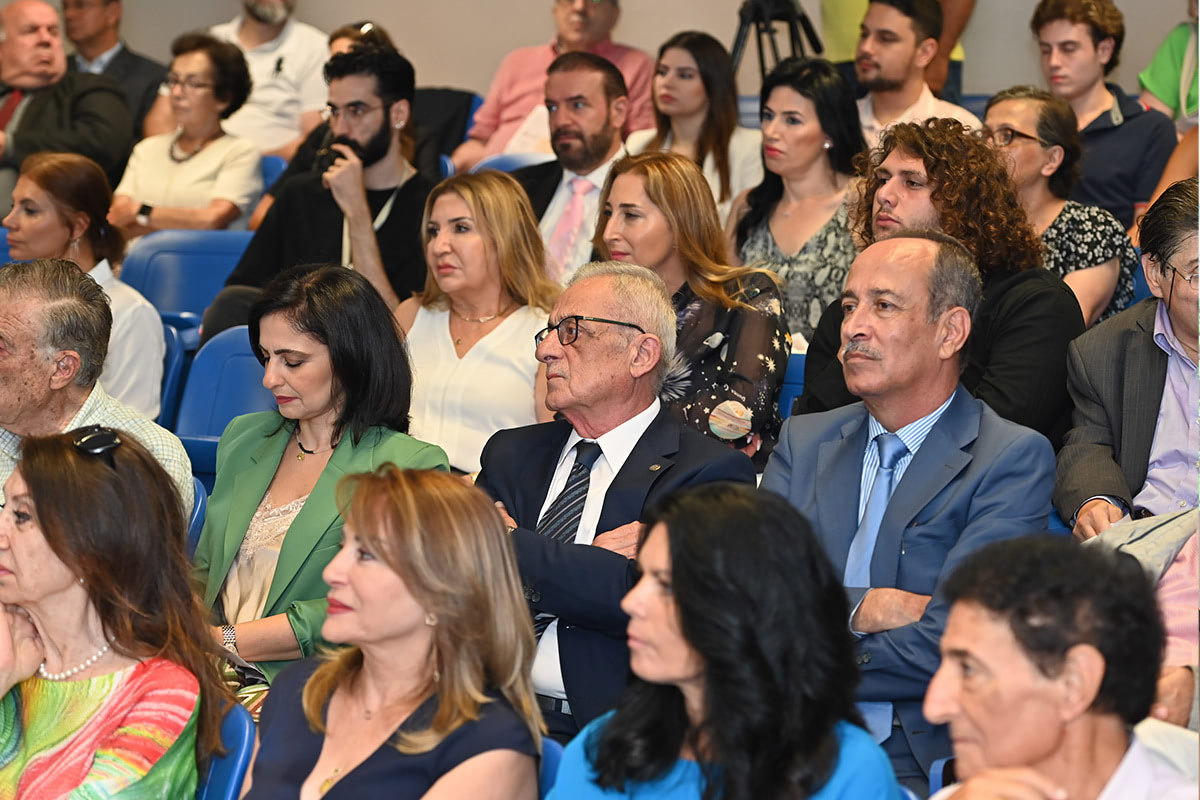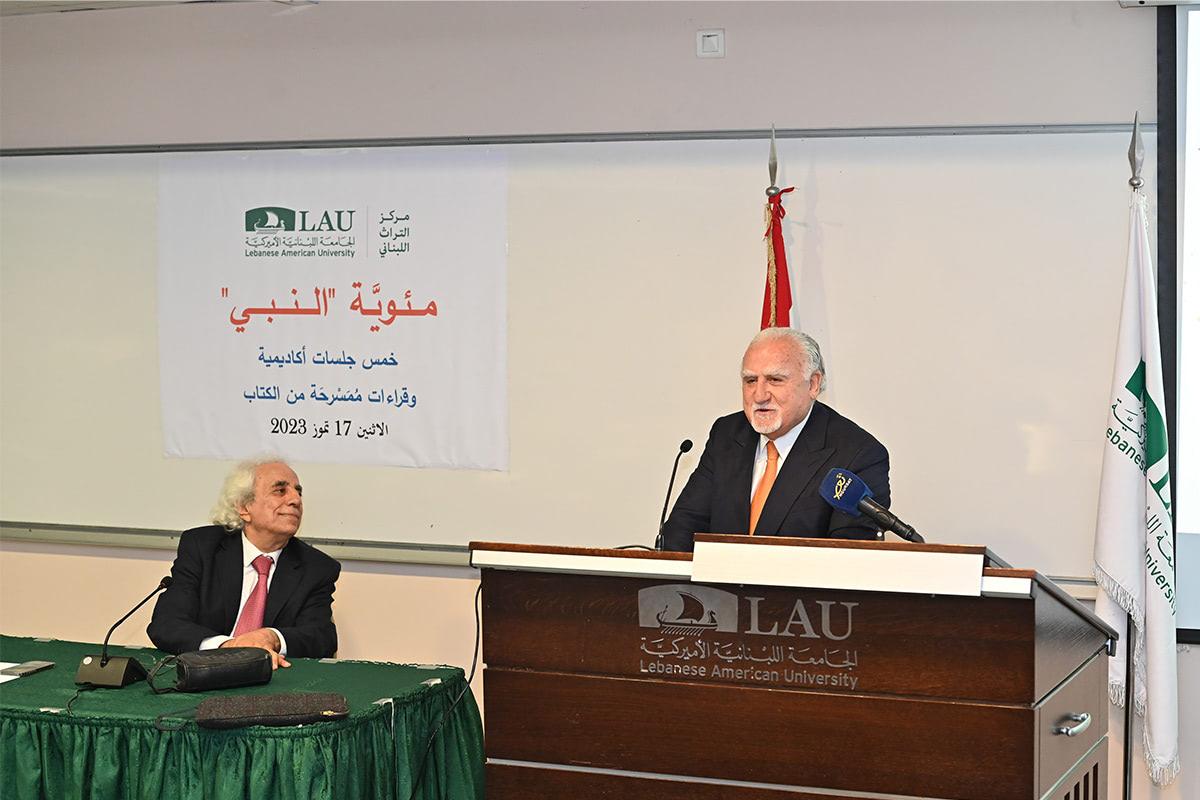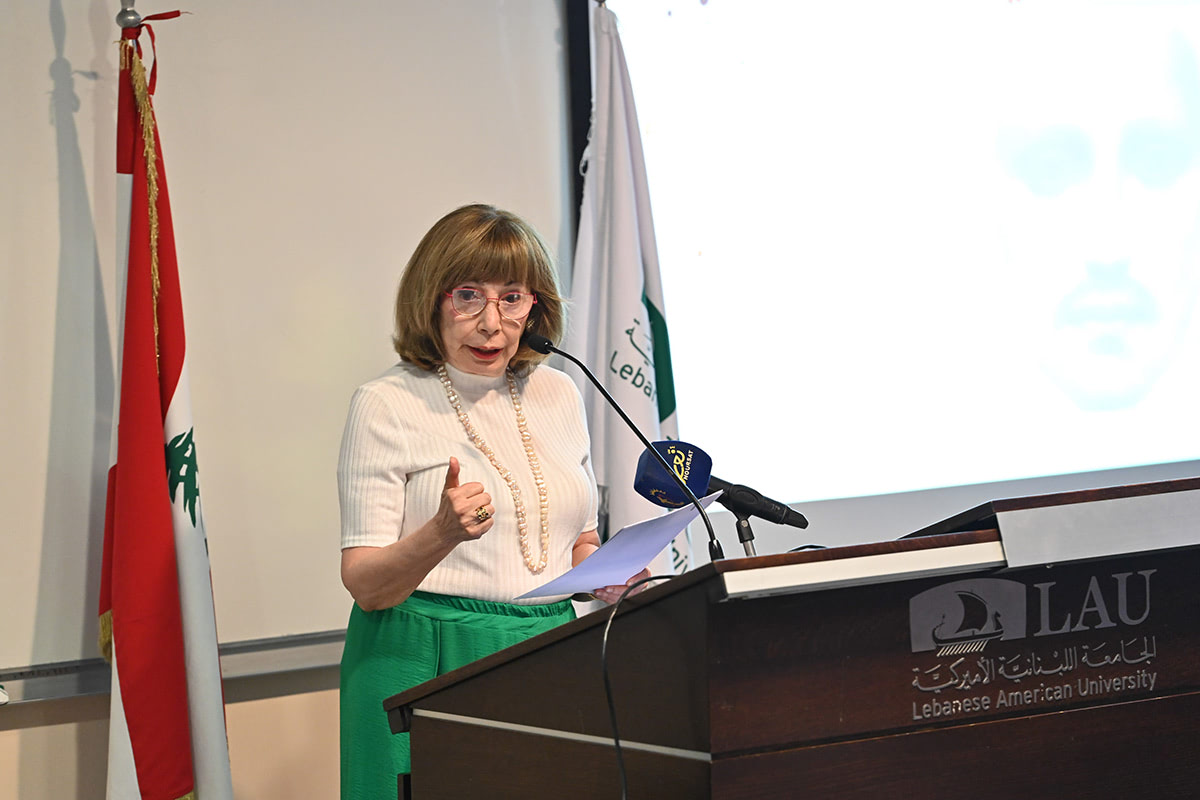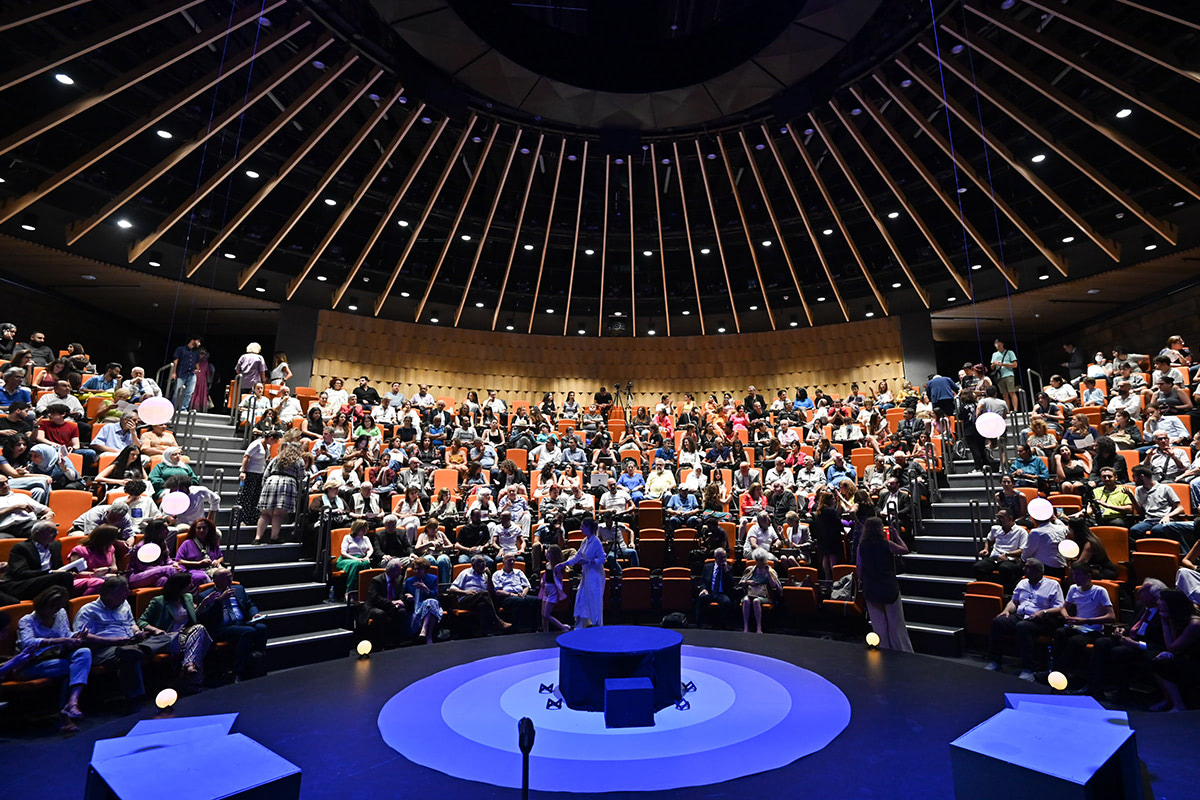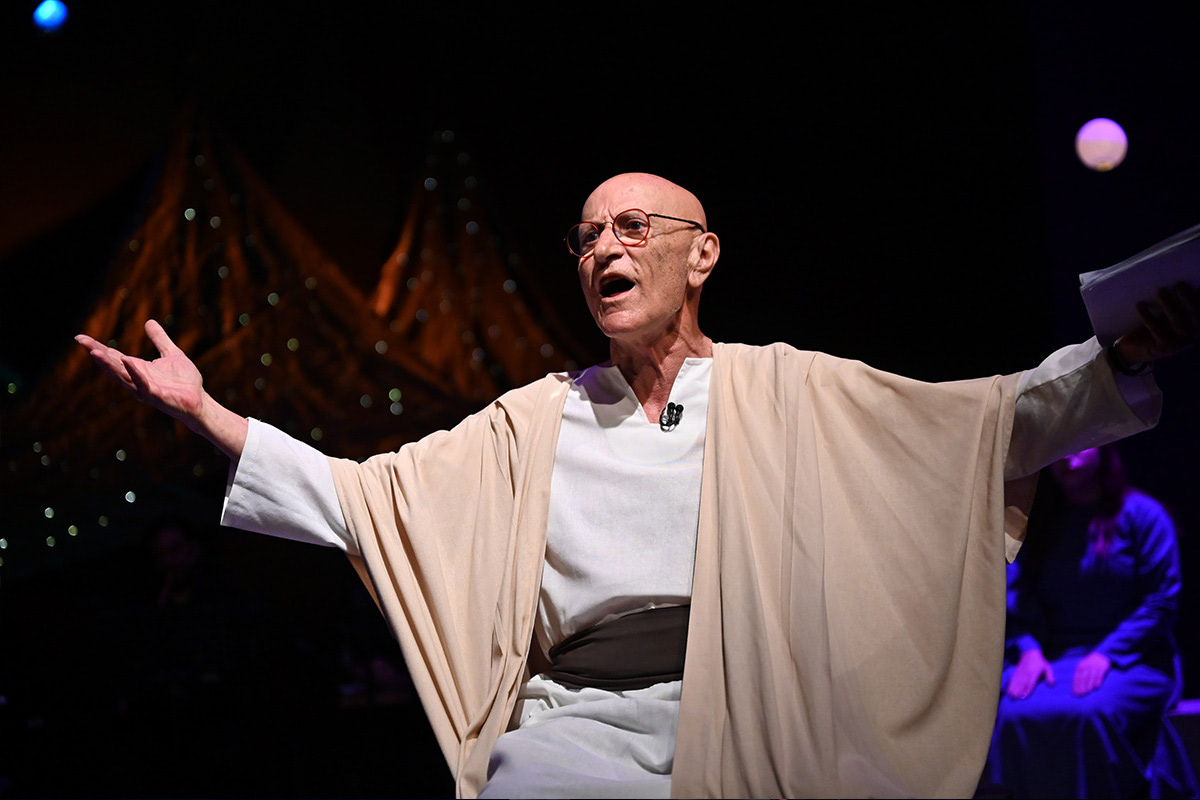From Orphalese to LAU, Khalil Gibran’s Prophet Returns
Hosting Lebanese and international participants, LAU’s Center for Lebanese Heritage commemorates the centennial of Gibran’s most-known book in a conference held on the Beirut campus.
A century ago, Lebanese-American writer, painter and poet Khalil Gibran set his philosophies to sail in his acclaimed book The Prophet, which chronicles the tale of Almustafa as he delivers brief sermons on 26 subjects to the residents of Orphalese. Considering this work as “the best my soul has ever conceived,” Gibran bestowed upon his generation – and those to come – an inexhaustible spiritual guide that speaks for itself.
For this reason, the Center for Lebanese Heritage (CLH) at LAU celebrated the acme of Gibran’s achievements in a full-day conference titled Centenary of The Prophet on July 17, 2023, during which local and international experts expounded on Gibran’s impact on the artistic world.
The conference included five discussion sessions and concluded with theatrical readings from the book in its newest translation penned by CLH Director Henri Zoghaib, who emceed the sessions.
As if transported to the city of Orphalese, the audience awaited seminars on Gibran’s prophet and his teachings.
On the Prophet’s Birth
In the opening session, speeches by LAU President Michel E. Mawad, Director Emeritus of Cancer Research at Baylor/St. Luke’s Episcopal Hospital in Houston Philip A. Salem as well as Lebanese poet and Director of the Gibran Chair for Values and Peace at the University of Maryland May Rihani extolled what Dr. Mawad called “CLH’s unfaltering efforts in celebrating one of Lebanon’s most renowned artists and his timeless masterpieces.”
Afterward, Lebanese lawyer and writer Alexandre Najjar and Director of the Gibran Museum in Bcharre Joseph Geagea took the stage to speak and present a video about the circumstances behind the inception of The Prophet in its literary form and its memorialization in the museum.
On Politics and Meaning
Gibran’s political activism was brought to the fore by Italian researcher Francesco Medici through “unknown documents about Gibran, the political activist” and social reformer who advocated for radical changes by displaying “unwavering dedication to his country and fearlessly championing its cause.”
Following Medici came Belgian researcher Philippe Maryssael’s lecture, reviewing the various Gibranian changes in the editions of his book throughout time – an idea that was further developed as Professor of Arabic and Comparative Literature at the University of Arkansas Adnan Haydar who highlighted the nuances of “the meaning of meaning” in translation technology in the third seminar.
But to “encounter Gibran” was an experience that Bulgarian researcher Maya Tsinova underwent “in his exquisite presence among the shelves of his library, seemingly transcending the boundaries of time and space.”
On Translation
This recollection, nonetheless, can also be met in Gibran’s literary work as described by CLH Advisory Council Member Najwa Nasr, who drew the line between Gibran’s version of Almustafa and the “multilayered prophets through multitudinous translations of the book, each bringing a separate form to themselves.”
Chairperson and Associate Professor at the Department of English and Translation at Notre Dame University Maya El-Hajj went on to highlight the challenges of literary translation – especially in the case of Gibran’s work – and how these seemed to dissipate in Henri Zoghaib’s recent translation.
“There has never been a translation that captured the essence of the Almustafa’s meaning as much as Zoghaib’s work flawlessly does,” she noted.
On Gibran’s Lasting Legacy
As the hours of the conference came close to an end, the atmosphere became abuzz with nostalgia when Lebanese poet, novelist and philosopher Mikhail Naimy’s goddaughter Soha Haddad reflected on being brought up to the morals of the philosopher, the artistic heritage left in the wake of her godfather’s friendship with Gibran, and “their deep dimensions of life and love; rather humanity as a whole.”
Following the concluding speeches of President of the Elite Center of Culture and Education Iman Derniqa and artist Fadi Balhawan, the audience made their way to the Gulbenkian Theater on the university campus for a special performance of theatrical readings from the new translation, prepared and directed by Assistant Professor of Practice Lina Khoury.
A live musical accompaniment on the stage added an ethereal dimension as actor Rifaat Torbey, together with a group of theater students from LAU, embodied Almustafa and the dwellers of Orphalese. As though living vicariously through the book, the audience was transported to the ancient city, experiencing the thoughts, struggles and triumphs of its inhabitants.
